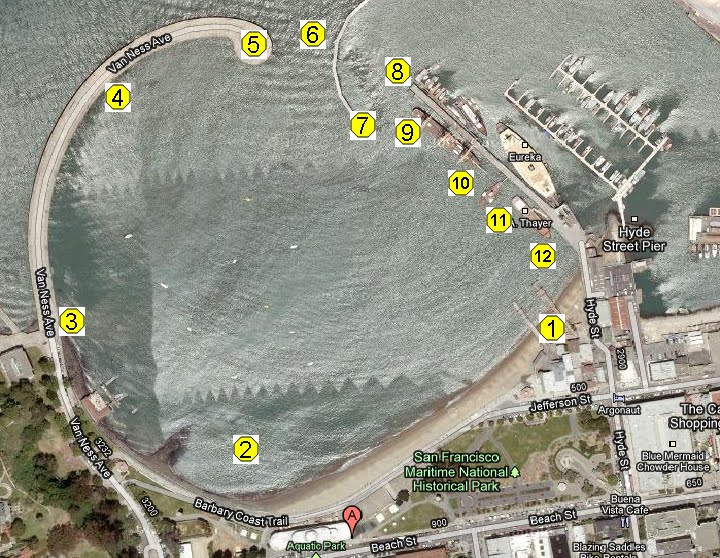Monday 08/09/10
Common wisdom proclaims that people with a higher body mass index are more impervious to the effects of cold water. In our weight-obsessed society, this topic generates vociferous discussion. A very amusing example is the furor aroused when a gentleman posted a query on the channel swimmers Google group regarding use of a wetsuit in the English Channel for a charity relay. One response labelled wetsuits as “textile steroids.” However, not a single person challenged the inverse relationship between body fat and susceptibility to cold.
Of the twenty Dolphin Club members who have swum the English Channel somewhat less than half gained weight for the attempt. Tom Keller is an example of someone who poured on the pounds with glee. He delighted in the prospect of adding a scoop of ice cream to his double cheeseburger. One multiple channel crosser tsks at the folks who don’t gain weight. She says, “We have a saying for those people—too vain, no gain!” By my observation, though, more than half of the successful swimmers headed to Dover toting no additional body baggage.
According to three studies published in the New England Journal of Medicine, all fat is not created equal. In one of the articles, the research team led by Aaron M. Cypess writes, “The adipose-tissue pool in mammals is composed of at least two functionally different kinds of fat: white and brown.” The fat is brown because it is filled with mitochondria. These tiny organelles live in animal cells and function as the “energy plant” manufacturing ATP. When activated by a cold environment, brown fat can burn substantial numbers of calories. Leslie Kozak conducted a study on mice that lost forty-seven percent of their body fat by being kept in a 41 degree room for a week while eating more than normal.
Some people have extended this notion to conclude that brown fat creates heat and keeps the body warmer in cold water. Another extrapolation is that exposure to cold does more than activate brown fat, it actually creates it. Proponents of this belief traipse through the winter months in shorts and flip-flops. My brief review of the literature supported neither of these notions but the thought is still intriguing.
At six feet tall and 180 pounds, I’m sandwiched between the endomorphs and the ectomorphs. My weight has only varied within a five pound range in the past year, usually dropping after a long swim. Until recently, I haven’t worried about the water temperature in the English Channel or my body fat percentage. Twenty-two years of swimming in the Bay have lulled me into a sense of security regarding cold water and sixty degrees has long seemed positively balmy. The eight hour swim cracked that confidence a little, but I still believe that resistance to cold is mostly related to the fat between the ears. Perhaps the ten hour swim will further challenge this belief.
In the meantime, vanity continues to play a determining factor for me in avoiding weight gain. BUT, I have some scientific support for my complacency. When patients have a heart attack, they apparently benefit from 24 hours of induced hypothermia. This led a research team headed by Joost Jimmink to conduct a study entitled, “The influence of body composition on therapeutic hypothermia.” Dr. Jimmink and his team found that, “The time to reach target temperatures seems not to be influenced (or at most only partly) by body composition.” Yet another argument to just "shut up and swim."
4 years ago

